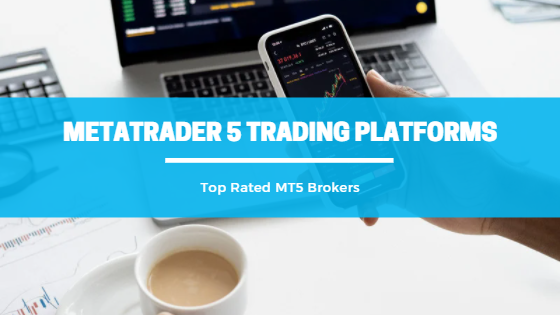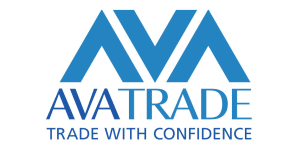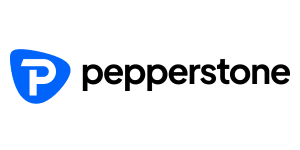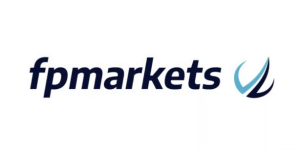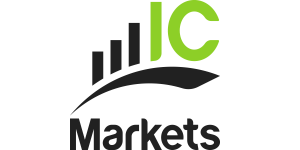In our guide, we will go over the best MetaTrader 5 Trading Platforms and Brokers. We base our research on a variety of factors, such as fees, security, regulation, and more.
If you’re still unsure about MT5, read until the end of the article, where we’ve put together a helpful list of resources to explain it further. You might also want to check out our top forex brokers list.
Best Trading Platform MetaTrader 5
We’ve reviewed some of the most popular and highly regarded MT5 brokers out there. We’ve looked at aspects of each broker, such as their fees and commissions, research tools, and accessibility.
This is our selection of the best MetaTrader 5 Brokers
- AvaTrade – Best Metatrader 5 Broker Overall
- Pepperstone – Best Low Spread MT5 Broker
- FP Markets – Best Fast Execution MetaTrader 5 Broker
- IC Markets – Best Raw Spread MetaTrader 5 Platform
- ActivTrades – Best MT5 Broker for Beginners
- VantageFX
- FXTM
- FBS
- FxPro
- Exness
- Admiral Markets
AvaTrade – Best Metatrader 5 Trading Platform Overall
AvaTrade is a social trading platform founded in Ireland in 2006. It is regulated by the Central Bank of Ireland. AvaTrade is one of the most popular retail brokers today.
AvaTrade’s cybersecurity is top-notch and it has won several awards for outstanding customer service.
The platform has a large user base which is great for social trading strategies. There are hundreds of signal providers for traders to choose from. The platform supports trading CFD, Forex, and Stock.
| Pros | Cons |
|---|---|
| Highly regulated and reputable | Demo-account limited to only 21-days |
| Low fees and commissions | High fees for inactive traders |
| Provides access to a wide range of markets |
PepperStone
PepperStone is a retail broker based in both the UK and Australia, regulated by the CFA and ASIC respectively.
PepperStone supports the MT4, MT5 and cTrader platforms. There are desktop, web, and mobile trading platforms.
There are plenty of market indicators available on the desktop app that will give you great insight into market sentiments and trends.
| Pros | Cons |
|---|---|
| Low charges for inactive traders | Needs more research tools |
| Free withdrawals and deposits into your account | High commission on CFD trades |
| Advanced risk protection and stop losses |
FP Markets
FP Markets is an Australian broker regulated by the ASIC that trades CFDs and Forex.
You can open an account with 10 different base currencies. It’s an easy process with a relatively low minimum deposit.
FP Markets has a highly competitive fee and commission structure. Unlike most brokers, FP Markets does not charge inactivity fees for dormant accounts. Also, they charge no withdrawal fees.
| Pros | Cons |
|---|---|
| Users have a free demo account | Product portfolio is limited |
| Regulated by trusted global authorities | The trading platform is basic |
IC Markets
IC Markets is an Australian retail broker launched in 2007. They have several global branches that fall in line with high-level regulations all over the world.
IC Markets offers users access to Forex and CFD instruments. Their trading portfolio is more limited than other brokers, but their Forex fees are significantly lower.
IC Markets uses both MT4 and MT5, although MT4 is the most popular. The platform is highly customizable. Users can easily change the size and position of all the relevant tabs.
| Pros | Cons |
|---|---|
| Low Forex commission | Instruments limited to Forex and CFDs |
| Quick account opening | Customer service is lackluster |
| Free withdrawals and deposits |
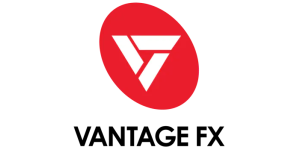
Vantage FX
Vantage FX is a global CFD broker based in Australia and is regulated by the ASIC and other authorities.
Trades using Vantage FX are not subject to inactivity fees, which makes it appealing to casual traders. Spreads on Forex are also competitively low.
Vantage has trading platforms for mobile, desktop, and web browsers. The broker has single-step login, which could be improved.
| Pros | Cons |
|---|---|
| Fast account opening | High minimum deposit |
| Highly customizable platform | Limited portfolio |
| Free demo account |
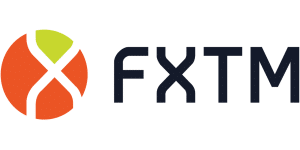
FXTM
FXTM, previously ForexTime, was established in 2011 as part of the Exinity Group in the UK. They are regulated by the FCA and CySEC.
FXTM gives their users access to Cyrpto and Forex securities. Customers in the EU are restricted from trading stocks.
FXTM has both web-based and mobile trading platforms. installing the desktop trading program is simple. It’s a compact program that uses very little space. FXTM is very customizable and users can set up push and email notifications.
| Pros | Cons |
|---|---|
| Well rated customer support | High inactivityfees |
| Loads of useful educational tools | Selection of trading instruments |
| Easy account opening |
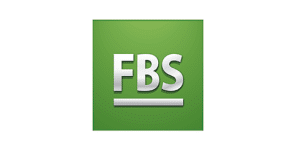
FBS
FBS is an international brokerage that has clients in nearly 200 countries. It is regulated in Cyprus under CySEC and in the UK under the FSA.
It charges no inactivity fees and $1 charges for deposits and withdrawals.
FBS allows traders access to over 30 different Forex pairs. Traders can buy and sell CFDs, but the offering there is quite limited.
It has highly sophisticated copy-trading features where traders can mimic trading strategies from profitable signal providers.
| Pros | Cons |
|---|---|
| Low fees and commissions | Traders in the EU have more limited security options |
| Wide variety of Forex Pairs | There’s no social aspect to the copy-trading platform |
| Platform allows scalping strategy |
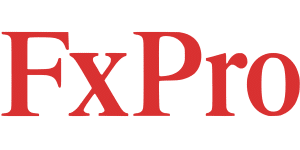
FxPro
FxPro is a globally regulated retail broker. They are regulated by the FCA and many other highly-rated authorities. They trade CFDs and Forex pairs.
FxPro supports the MT4 and MT5 trading platforms, as well as two smaller ones. They have over 40 international languages on their platform.
The platform is highly customizable which is ideal for more experienced traders. Newer traders might run into a few problems since lots of the information is buried deep in the platform.
| Pros | Cons |
|---|---|
| Customer service is fast and responsive | High inactivity fees |
| Low commission and spreads | Limited to Forex and CFDs |
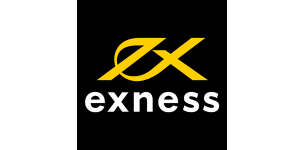
Exness
Exness is a global Forex trader that is regulated by the FSCA, FCA, and CySEC. It was launched in 2008 and is one of the smaller brokers on this list with just over 50,000 active accounts.
Traders using Exness have access to lots of trading instruments, including crypto, Forex, precious metals, and stocks.
Exness only offers two account types – standard ECN and demo accounts. This may deter more experienced traders who are willing to invest more capital, but for most casual traders a standard ECN account should suffice.
| Pros | Cons |
|---|---|
| Low account minimum | High leverage maximum |
| Wide variety of trading instruments | Stripped back trading platform |
| Long history of reliability |
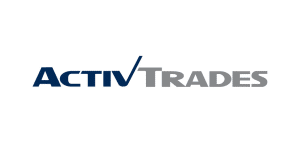
ActivTrades
ActivTrades is regulated by the FCA. They are a Forex broker founded in the UK in 2001.
ActivTrades is much less expensive than other brokers. Withdrawals from your ActivTrades account are free, and commissions and spread charges are lower than others. The minimum deposit is quite high, though.
ActivTrades trades CFDs and Forex. Unfortunately, instruments like stocks, commodities, and cryptocurrencies are not available.
| Pros | Cons |
|---|---|
| Low trading fees | Limited instruments to trade |
| Good customer support | Minimum deposit is high |
| High quality research tools |

Admiral Markets
Admiral Markets is an Estonian based CFD forex Broker. They are regulated by the FCA as well as several other authoritative bodies. They trade primarily in Forex and CFDs.
Admiral Markets offers thousands of tradable assets and great educational section. Admiral Markets offers two different account types, both of which are compatible with MT5. They also have Sharia accounts, but traders will have some instruments limited from them.
| Pros | Cons |
|---|---|
| Client funds are kept in segregated accounts | High minimum deposit to open accounts |
| Wide range of trading platforms | No fixed spread accounts |
| “Zero to Hero” 21-day training course |
MetaTrader 5 Explained
MT5 is an online trading platform released in 2010. It’s a complete overhaul of its predecessor, MetaTrader4.
Where MT4 was built to trade Forex and CFDs, MT5 has a wider variety of securities available to trade.
Brokers like PepperStone pay to license the platform to supply it to their customers. Users can choose to trade through a third-party broker, which gives them access to unique research and educational tools.
The platform is available via a desktop program, but it also has a mobile app for Android and iOS devices so you can trade away from home.
MT5 vs MT4
MetaTrader 4 was hugely popular, and in 2010 MetaQuotes released an update to their platform.
MT5 was a massive overhaul of the system which brought in several previously unavailable assets like stocks and commodities. It’s a much faster platform. It executes trades faster and with fewer instances of slippage.
Like with MT4, MT5 uses a version of the MQL programming language. MQL5 is backward compatible with all MQL4 scripts, so there’s no need to build or find new trading robots.
MT5 vs cTrader
cTrader was developed by Spotware in 2011. It is one of the largest trading platforms available to brokers.
In terms of design, cTrader feels more modern and sleek. One of the downsides of the MetaTrader platforms is their style. It often feels like a computer program from the 90s.
MT5 uses the MQL5 programming language to build Expert Advisors which monitor and automate trades. cTrader has similar cBots which are built using C#. It’s a more common programming language, so finding scripts and widgets that work is a bit easier.
In terms of trading instruments, the two platforms don’t vary much. Both MT5 and cTrader host stocks, commodities, CFDs, and indices.
Pros and Cons of MetaTrader5
Pros
- The platform is easy to use and navigate. It’s great for new traders looking to learn the ropes and for veterans who’ve been trading for years.
- Traders can build their own Expert Advisors to automate trading or they can find pre-built Advisors in the store.
- The platform provides analytics on 100 currencies or stocks at a time. This means traders can compare real-time prices between instruments.
- There is a wide range of built-in technical indicators and graphical analytic tools to break down market information into useable data.
Cons
- Expert Advisors from MT4 have to be recoded as they are not compatible with MQL5. This is a problem because the massive popularity of MT4 means thousands of robots won’t work on MT5.
- MT5 has disabled certain trading strategies such as hedging. Hedging is a good strategy to mitigate potential losses when trading volatile securities.
- MT5 is much newer than MT4 which means many of the kinks and bugs haven’t been fixed yet. This is frustrating to work with since the platform is so large many of the bugs haven’t been found.
Features and Benefits of MetaTrader5
Expert Advisors
Like its predecessor, MT5 uses a proprietary programming language where users can design scripts and tools. These tools can monitor market sentiments and trends to automate aspects of trading.
Traders can build their own tools if they understand object-oriented programming or they can find free tools on the platform’s website or they can buy them in the marketplace. There are currently over 6000 advisors to choose from.
Programmers can earn extra money by selling their tools on the marketplace.
Research and analytics
MT5 has a host of analytical tools. These vary from charts and graphics to technical indicators.
Traders can use Expert Advisors to monitor markets in a way that works for them. The platform also allows users to download data onto a spreadsheet so that they can examine it on their own terms.
Copy Trading
Copy-trading has become increasingly popular over the years. MT5 allows users to mimic the trading strategies of highly profitable signal providers.
Traders can choose to become signal providers to allow other traders to copy them. Signal providers earn commission and rewards for having other traders subscribed to them.
The platform also encourages social trading, which combines elements of social networking with retail trading. Users are encouraged to chat and trade tips and tricks that they have learned while trading.
How To Pick an MT5 Broker
Online Security
The brokers in this article have a long track record of online security. If you’re considering using a different broker, there are a few key features to look for.
Firstly, make sure they encrypt all their data. Unencrypted data makes your account a soft-target for hackers who could easily steal your data, log into your account, and clean you out.
It’s also important to practice good online hygiene while trading. Change your password often and make sure your antivirus is turned on and up-to-date. You could also consider using a VPN to further protect your data online.
Regulation
It’s important for all traders to understand what regulations your broker is subjected to, and how those regulations will affect you. Every country and economic region has different laws.
Different regulatory zones have various financial authorities that set laws and regulations for brokers to follow. These regulations will change leverage and margin ratios and security protocols.
Some regulations could bar you from trading on certain instruments. For example, traders in the US are not allowed to trade on CFDs.
Fees & Commissions
Brokers charge commission every time a trader opens or closes a trade. Many brokers also charge overnight fees for holding a position over a trading day.
If your broker charges you higher commissions, you will earn less on successful trades. But paying more in commission can be worth the extra cost, provided that broker gives traders access to extra features or research tools.
Most brokers also charge inactivity fees for traders whose accounts have been dormant. Since brokers make money from people actively trading on their platform, they encourage users to trade frequently.
Tradeable Securities
Securities are the actual assets that traders use to trade. These are also called “instruments.” Instruments include Forex, CFDs, stocks, commodities, cryptocurrencies, and more.
The performance of every instrument varies based on different market sentiments. Some strategies will be more profitable than others depending on the securities you plan on trading.
As an example, stock positions are often taken over the long term. Investors will hold onto their position for months or even years. Trading CFDs is a more short-term investment.
Education
Brokers provide educational tools to traders using their platform. Some of these are simple slide shows, or more complex webinars and courses.
Not all educational tools are meant for every trader. Some have been designed specifically to assist newer traders. Others are aimed at more experienced traders.
Traders with lots of experience should look at brokers who have educational resources that cater to them. These resources are a large part of what you pay for, so it’s important to get the most out of it.
Customer Support
Many traders are concerned about the level of customer support they can expect from their broker.
Often, brokers can only be contacted during office hours from Monday to Friday. Because of the wide range of time zones that brokers operate in, this can make getting hold of them a challenge.
Some platforms, such as AvaTrade, have earned accolades from industry professionals regarding their excellent customer service. Before committing to a broker, it’s a good idea to research what other users have to say about their support.
Minimum Deposits
Every broker has different minimum requirements for deposits to open an account. Not all brokers require a deposit amount, letting users open an account for free.
Brokers like ActivTrades that have higher minimum deposits tend to be aimed less at newer traders, using the deposit amount as a barrier for entry.
Even if your chosen broker doesn’t have an account minimum, you will still need to transfer money into your trading account to open a position.
MetaTrader 5 vs NinjaTrader 8
NinjaTrader is a relatively small competitor to the MetaTrader platform. It was founded in 2003 and is offered by several brokers, although far fewer than those who support the MetaTrader platforms. NinjaTrader currently has over 100,000 users.
NinjaTrader 8 is free to use for charting, market analytics, and trade simulations. However, licensing the platform is quite pricey. Traders can choose a yearly subscription – over $700 – or a lifetime license – over $1000.
In terms of the features each platform has on offer, MT5 is far superior. It has more research tools that traders can use to understand their markets.
MT5 is available through more brokers, so it’s more accessible to the average traders.
Unless NinaTrader dramatically drops its prices, we can’t recommend the platform.
FAQ
Which is better, MT4 or MT5?
Traders have been arguing for years over which platform is superior. However, we don’t think this is a fair discussion.
The truth is, MT4 and MT5 are different platforms that cater to
different needs. MT4 was built for trading Forex and CFDs
speculating on Forex.
MT5 has Forex options, but it is a more
general platform that has access to a wider range of securities.
MT4 is by far the more popular platform, but MetaQuotes is gradually phasing the platform out. If you’re a new trader, learning MT5 is going to save you a lot of heartache in the long-run.
What Brokers use MetaTrader?
The MetaTrader platforms are the most widely used trading platforms in the world. Most brokers use either MT4 or MT5. All of the brokers on this list offer both MT4 and MT5.
Is MetaTrader a Broker?
MetaTrader is a trading platform, not a broker. Brokers lease the MetaTrader platforms by buying a license to use the service.
